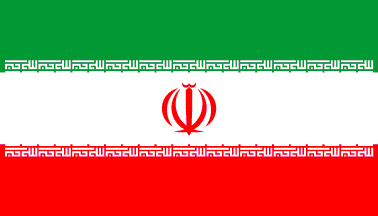The Kurds have fluctuated between three main themes when discussing their sales to Iran: that they are legal, that it is out of their control, and that it is Baghdad’s fault. First, the KRG’s Natural Resource Minister Ashti Hawrami told a New York Times reporter in May 2010 that only surplus fuel and other oil byproducts were being sent to Iran. In the following months he said that was legal because no crude oil was being sold. The KRG claimed that all oil sales would be coordinated with the central government. Later they claimed that all the sales were officially authorized by the Natural Resource Ministry, and they had that right as an autonomous region. They also told the press that these sales were known to Baghdad. Next, Minister Hawrami was reported as saying that there was smuggling going on from other parts of northern Iraq that traveled through Kurdistan to Iran, but that they had no control over them. They tried to blame that on the central government for subsidizing fuel, which keeps prices artificially low, and thus encourages smuggling to sell the products for a profit in other countries. The KRG has gone on and said that there is oil smuggling going on in southern Iraq to Iran as well to try to draw away attention from themselves. The last story that they have presented is that they are legally selling oil byproducts to private companies in Kurdistan, and that they are free to do what they want with it afterward.
There are some consistencies to their claims, but also problems. First, the KRG has always maintained that they are not selling crude to Iran, only oil byproducts like fuel and diesel. They are also correct that there is smuggling going on in southern Iraq to Iran, and that government subsidies encourage criminals to buy or steal oil byproducts for cheap in Iraq, and then sell it abroad for a profit. Where they run into issues is over how fuel and other products are ending up in Iran. They’ve claimed that private companies are going to Iran on their own, but a Reuters report talked to truck drivers lined up at the Kurdistan-Iran border who said that they went to KRG run refineries, got official papers from the Natural Resource Ministry, and were told where to deliver their products in Iran. There could be both companies selling products to Iran and the KRG however. Another problem is that the Kurds told the press that they informed Baghdad of these exports, but the Oil Ministry has denied that. Finally the ultimate question is whether the Kurds have the authority to sell fuel to Iran or not. That can’t be answered right now as both the Oil Ministry and the Natural Resource Ministry disagree. Baghdad claims only they have the right to authorize exports of any energy products, while the KRG have stated that they can do so on their own. That’s caught up in the larger issue of the division of authority between the central government and the regional one. That’s unresolved just like the sales to Iran. The Kurds are going to continue to do it, while Baghdad will keep on objecting. The winner for now at least, are the Kurds who are allegedly making up to $264 million a month off of these operations, which supposedly goes right into the coffers of the two ruling Kurdish parties, and there is nothing that can stop them.
SOURCES
AK News, “KRG refutes Reuters’ exportation report,” 7/23/10
- “Kurdistan Government denies any breach of international law over exported out to Iran,” 7/21/10
- “No substantial change in oil exportation in August,” 7/15/10
Dagher, Sam, “Smugglers in Iraq Blunt Sanctions Against Tehran,” New York Times, 7/8/10
Lando, Ben, “UN oversight of Iraqi oil money struggling to adapt,” Iraq Oil Report, 7/28/10
Platts, “Iraq says to discuss oil smuggling to Iran with Kurd authorities,” 7/11/10
Al-Rafidayn, “The smuggling of oil revenues from Kurdistan to Iran amounting to $264 million per month,” 7/27/10
Reuters, “Despite pledges, Iraqi Kurd oil still flows to Iran,” 7/22/10
- “Iraq Kurds say to crack down on fuel smuggling,” 7/11/10
El-Tablawy, Tarek and Barzanji, Yahya, “Oil smuggling to Iran embarrassment for Iraq,” Associated Press, 7/13/10
Waleed, Khalid Khalid, Shorsh, “Oil Smuggling Allegations Widen Baghdad-Erbil Rift,” Institute for War & Peace Reporting, 7/23/10
Williams, Phil, “Criminals, Militias, And Insurgents: Organized Crime In Iraq,” Strategic Studies Institute, June 2009













